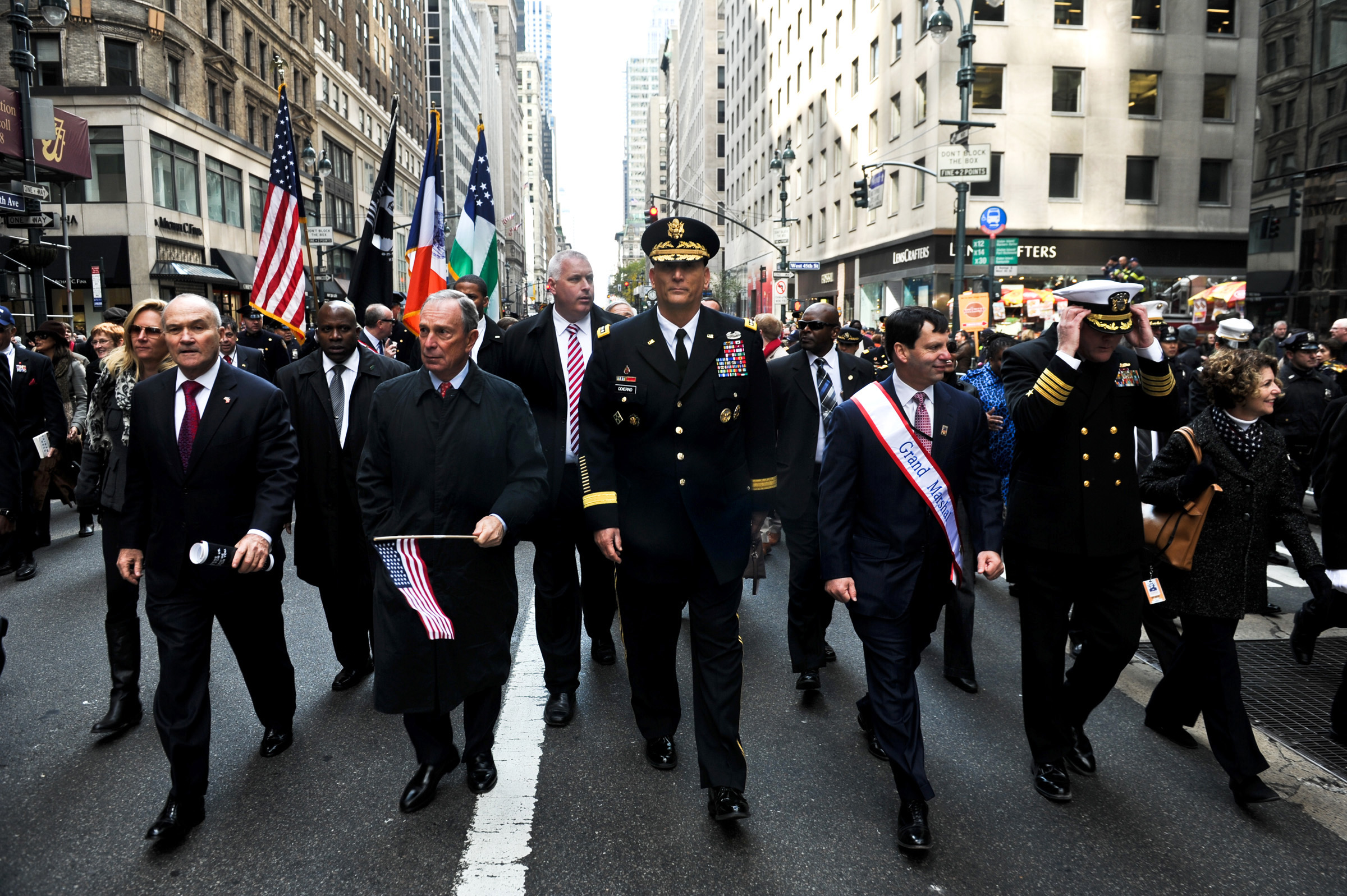“‘I’m a Vietnam veteran…. I fought in Vietnam and I’ve got a right to be treated decently.’
‘Vietnam,’ the aide says loudly. ‘Vietnam don’t mean nothin’ to me or any of these other people. You can take your Vietnam and shove it…’””
— Ron Kovic, Born on the Fourth of July
Last year, a veteran-owned coffee company spurred controversy in a response to the announcement by Starbucks that it would hire 10,000 refugees. In a post on Instagram, the company countered Starbucks’ announcement with a picture that on one half had Starbucks’ pledge over a picture of ISIS fighters and on the other, a photo of a U.S. serviceman and a pledge by the coffee company to hire 10,000 veterans. The post went viral, of course, spawning countless internet spats and more than a handful of media reports.
Immigration is apparently not the only issue over which being a veteran provides one the moral high ground, either. Kneeling during the national anthem, gun control, and #metoo are just a handful of cultural flash points that have ignited debates whose repartees have not infrequently featured military service as a basis for viewpoint and have, more frequently, been pitting veterans from opposing ends of the political spectrum against each other. I can’t open veteran Twitter these days without seeing accounts squaring off, conservatives using words like “commie” and “pinko” while progressives loft the “fascist” grenade during 240-character repartees.
Veterans are not a monolith, and it would be unhealthy to believe otherwise. But against the backdrop of a culture war that has gone hot, we should be concerned about the politicization of the veteran identity. The nation’s adversaries recognize the vulnerability of veteran identity for exploitation by social media influence operations. During the 2016 presidential election, Facebook groups and accounts purporting to be veteran-connected spread virulent messaging that exploited military service in order to sow broad discord.
In light of this, I can be forgiven a nostalgic and admittedly simple yearning for a time when being a veteran only mattered two days out of the year. But I cannot help but wonder how we, the veteran tribe, got here. “Here” being a moment during which we find our military service — ironically the thing we volunteered to do to make the nation strong — being used as a means of weakening national unity.
♦
The strange case of Edwin Walker provides a useful backstop for a modern examination of military status as exploitable capital. A 1931 graduate of West Point, Walker’s career began auspiciously. He served honorably in first in WWII, then the Korean War as a U.S. Army officer. But by the late 1950s, he had fallen under the influence of segregationists and anticommunists, whose message he allegedly promoted in the ranks, which precipitated a formal inquiry. It found the charges unfounded, but a wounded Walker — by then a Major General — attempted to resign his commission in 1959. President Eisenhower rejected his resignation and instead awarded him command of the 24th Infantry Division, but allegations rose once more in 1961. This time, Secretary of Defense Robert McNamara yanked Walker from the field during an investigation over a tabloid charge that Walker was indoctrinating his troops with John Birch Society tenets, which once again was found unsubstantiated. There was, however enough evidence to admonish Walker, who chose once again to tender his resignation, thereby giving up his military retirement. President Kennedy accepted. “It will be my purpose now, as a civilian, to attempt to do what I have found it no longer possible to do in uniform,” said Walker.
Newsweek put Walker, in uniform, on its cover in 1961 under the headline “THUNDER ON THE RIGHT: The CONSERVATIVES, The RADICALS, The FANATIC FRINGE.” It’s not immediately clear which category of the three the editors intended Walker to fall under. A review of his disastrous remaining time as a public face of American conservatism is highlighted by the bizarre and the frightening: he was arrested for leading segregationist riots at the University of Mississippi in 1962, finished last in the Texas gubernatorial race, called Attorney General Robert Kennedy “stupid little brother,” was nearly assassinated by Lee Harvey Oswald, and ended his brief tenure in the public eye spurned by mainstream conservatism. His 1976 and 1977 arrests for public lewdness were simply the denouement of the long decline of a confused and misled military man.
Walker’s abhorrent actions put momentarily aside for the purpose of this essay, it’s the Newsweek cover that gives me pause. I cannot imagine an editorial choice to feature Walker clad in anything but the uniform of a two-star general officer. It’s too strong a symbol, too useful as compelling media. But in light of what Walker stood for, it won’t stop me from wishing it had never happened.
♦
If Walker kicked the tires of modern veteran identity, the Vietnam War lit the fires. Professor Joseph Darda of Texas Christian University and Notre Dame’s Roy Scranton have both penned uncomfortable essays that allege the establishment of veteran identity as closely linked to white insecurity post-Vietnam War. Darda’s essay, which appeared in Los Angeles Review of Books, makes me particularly squeamish, opening with the most compelling evidence for Darda’s thesis: quotes by Jack Wheeler, the man behind the Vietnam War memorial, that co-opt the n-word as applicable to any victim of widespread mistreatment, to include veterans.
It’s not that I believe Darda or Scranton are wrong in their allegations of racialization. But I don’t think they’re 100 percent right, either. Darda believes that Wheeler and the others who pushed the narrative of the traumatized veteran post-Vietnam were side-stepping their white insecurity: “It is easier to argue for vets than to argue against affirmative-action policies and the rights of black and brown people.” But Darda leaves out the fact that The Veteran as a protected class of citizen and arguably the root of the identity itself, was established by legislation rooted in affirmative action and civil rights.
Indiana Senator Vance Hartke introduced the Vietnam Era Veterans’ Readjustment Assistant Act of 1974 during the 93rd U.S. Congress. Senator Hartke, Indiana’s first Democrat elected to the Senate (1958), supported both the Civil Rights Act of 1964 and the Voting Rights Act of 1965. His 1974 legislation, vetoed by both President Nixon and his successor President Ford over costs associated with a measure in the bill that expanded GI Bill benefits, allowed veterans who believed they had been discriminated against by employers with federal contracts to file complaints. I suppose it’s possible that Hartke’s real motivation to protect Vietnam War veterans from cultural scorn was white insecurity; that he possessed the cynicism and calculation necessary to co-opt affirmative action in order to protect a status quo under the guise of advocating for the veterans of a war he opposed so bitterly that it put him at odds with his civil rights ally, President Johnson. But it seems like a stretch. What is plausible, however, given the affirmative action nature of the Hartke’s legislation, is that the lineage of the modern veteran identity likely begins with the aggrieved post-Vietnam War veteran. In this light, Darda’s racialization cannot be completely discarded, but it would beg the question of whether by extension all affirmative action is inherently racialized. There are many thinkers whom I’m sure are willing to test that theory. I, however, am not.
♦
If I come off as having a complicated relationship with veteran identity, it’s by design. One one hand, I understand the critique of identity politics writ large. The ironic othering that requires an “us” in the first place, the logic goes, weakens a national identity supposedly built off the primacy of human identity. Nation/human good. Division/[insert identity here] bad. Squint your eyes long enough at the American experiment, and I can see how this narrative might emerge. The problem is that it’s a blurry picture at best, in whose unseen details are so many transgressions carried out in the name of national identity. Frankly, simply appealing to the compassionate slice of human nature in order to right these wrongs doesn’t seem like a winning tactic in a democratic construct under which a moral imperative does not equal political capital. One need look no further than civil rights movements since the 1960s, which have been defined by identities of race, gender, and sexuality. You’d have to be a simpleton to believe that at some point that we as a collective society were going to wake up one day and realize we’d been doing it wrong; that without the voices of the aggrieved, we were going to lead ourselves to truth.
♦
I included the Born on the Fourth of July epigraph at the beginning of this essay because it prompted a memory that I produce here with more than a little shame. The summer of 2005, I went to Chicago for a wedding. It had been more than a year since I’d returned from Iraq, but the war’s headlong descent into absolute chaos left me bitter, quick-tempered and ill-adjusted to civil life. A friend and I went to the Sears Tower, which advertised a discount for veterans like me who wanted to glimpse the world from the dizzying heights of its pinnacle. Or maybe it was free, which would explain my behavior but not excuse it. At the ticket counter, I produced my ID. But it wasn’t the normal military ID card, which I’d forgotten in my hotel room; it was the badge and credentials I carried as a military special investigations officer. The woman balked, saying I couldn’t use it for the veteran deal. Fuming, I explained louder that it was a valid form of identification and could I please get my discount. No. At this point, I played the you-sent-me-to-war-and-I-deserve-this card even more loudly.
“I didn’t send you to Iraq,’ she responded with just a hint of attitude, her spine stiff and a blank look on her face.
Surely red-faced, and probably making some kind of huffy remark under my breath, I handed over my money and she gave me my ticket.
The episode has always bothered me. The way the words fell out of my mouth so carelessly; the ease with which I produced an entitled sense of self-righteousness: even if she was taking a rather narrow view of what constituted military identification, she deserved none of it any more than I deserved a free ride through one hundred and three flights up the Sears Tower.
I share this with you not because I’m drawing a parallel between not getting a discount and an amputee being mistreated in a decrepit VA hospital. I share it because thirty years after the experiences of Kovic and other veterans like him, I tried to use my service to justify a request not for the basic right to human decency, but for a goddamn discount at a tourist attraction.
♦
The good news is that it appears Senator Hartke’s 1974 legislation helped to heal the societal division between the nation and its veterans, a legacy that endures. Iraq generated years of negative animus, and yet its veterans — myself included — are not marginalized the way our Vietnam War forbears were. Much the opposite, in fact. Even if it’s often awkward, more than likely superficial, and occasionally a little repugnant. It has given us the freedom to mobilize behind other concerns, like the post-9/11 GI Bill, which reformed the WWII-era Montgomery GI Bill to meet the requirements of today’s vets. The legislation, sponsored by Senator James Webb, a Vietnam War veteran himself, was underwritten by the support of multiple groups built around veteran identity, to include Iraq and Afghanistan Veterans of America, Veterans of Foreign Wars, and others.
But other efforts have yet to bear fruit. While it’s hard to imagine the nation caring about the condition of the Department of Veteran Affairs as much as it would appear to without veteran mobilization, it has not been enough to produce a scandal-free organization. Nor have I observed a united effort in the veteran identity community to demand accountability of The Forever War. This puzzles me, as it is the most obviously linked, highest-impact political issue facing veterans.
Regardless of how we got here, the veteran identity is not going anywhere anytime soon. The draft was discarded after the Vietnam War in favor of a professional military. Those who argue in favor of its return tend to conveniently forget the way the Vietnam War-era draft disadvantaged both race and class, to disastrous end. Less than one percent of the nation now serves in its unending wars, and the demographic of those capable of, to say nothing of interested in, meeting military entrance standards is shrinking.
If this moment we now find ourselves in is a potential inflection point for veteran identity, then we would do well to recall both the bad and the good. The cautionary tale of Edwin Walker and the role of social media in the 2016 election, in addition to the passing of legislation favorable to veterans. The business of division is no place to assert the primacy of military service.




